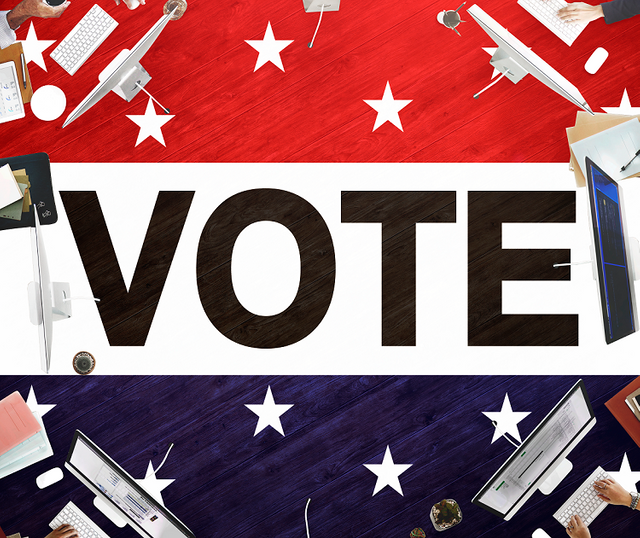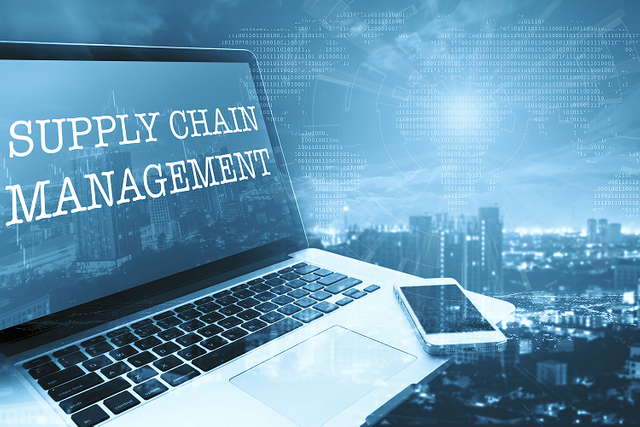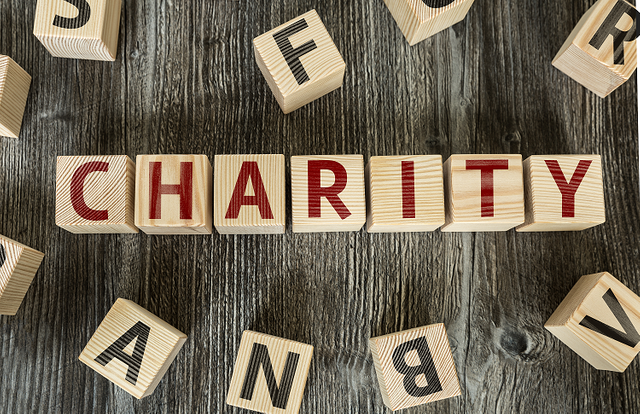Top 10 Industries Disrupted by Blockchain
Top 10 Industries Disrupted by Blockchain

Blockchain technology is the new buzzword in nearly every market sector. The applications of the technology are limitless, and it benefits almost every industry. The technology has revolutionized the marketplace using peer-to-peer networking where every node stores and transmits data over an encrypted channel.
The end to end network transmissions creates a decentralized public ledger, therefore, allowing a truly distributed consensus which is not controlled by any central authority. The blockchain is consequently considered to be the modern business infrastructure that facilitates trustworthy business models and smart contracts to create transactions independently.
Here are a few industries that will see business revolutions in the coming years:
Banking

The bureaucratic infrastructure in banking industries has seen a massive hit due to the digitization of assets and online transfer of funds. Another advantage of the blockchain revolution involves the birth of encrypted currencies, also known as crypto coins. It is unambiguous that the first word popping in your mind is Bitcoin since it is a stellar example of blockchain implementation in the banking sector.
Blockchain technology gave birth to millions of currencies and tokens that form the basis of digital commerce through Initial Coin offerings (ICOs) and crypto transfers. The technology has brought nearly every banking possibilities to the hands of the users. Users can now create funds, lease assets, transfer or accept payments, contribute to new businesses and so on. The banking sector has made its peace with the rising trends where several banks in South Korea has made optimum policies to accept encrypted transactions.
The banking industry is safe in the hands of blockchain where every transaction can be cross-checked by participating nodes yet the identities of transacting parties are kept safe. The operations can be now cheaper, faster and more secured.
Real Estate

Decentralized ledger is a publically stored encrypted storage of user data that secures the identity of users while preserving the concreteness of data. This means malicious attackers cannot alter the system data for personal gain.
The concreteness of the ledger has created new opportunities in the Real Estates where records are made easily accessible. The accounting is ubiquitous hence facilitates a global business. Through blockchain, users enjoy a transport record to store titles and property details. This will save significant time and deliver an open filing system to reduce processing costs. It is estimated that real estate firms in the US will save $550 million by merely minimizing errors and implementing automated methods to manage and control information.
Another advantage of the distributed technology is reduced paperwork. Thanks to the digital transformation, processes such as registration are made possible by eliminating the escrow. Using smart contract systems, parties can independently create business operations by following predefined conditions. The contract ensures user satisfaction through procedural executions conducted every time a condition predefined in the contract are met.
Blockchain provides cost-effective alternatives by eliminating the intermediaries. Hence the real estate business will see a significant improvement in trades and purchases.
Healthcare

Healthcare sector is prone to significant disadvantages when it comes to patient data management and information transfer. The industry lacks set standards to manage medical records and create proper technical upgrades to solve security issues. The immutable technology of blockchain has created a functional solution to the problem. The healthcare industry has created satisfactory answers by implementing software to manage public records.
Using blockchain systems, hospitals and doctors will be able to access patient files without dealing with the hassles of paperwork and inefficient verification methods. Patient’s digital records will be made available over a cloud network that can be accessed from anywhere all around the world to give prompt and well-informed treatment.
The industry is expected to create a union of databases over the network to solve the problems of security, data duplication, or fraudulent impersonations. The technology will prove to be fruitful in a scenario where the information is required immediately to make life-saving decisions.
Voting

Voter’s identity has been the topmost priority over the recent years. To avoid duplicates and imposters, the blockchain development has made its ripples in the upcoming election scenarios. A dedicated audit trail can be used to authorize every voter. The DAO or the Decentralized Autonomous Organization ensures an automated management system to select the voters and ensure that each voter gets to cast exactly one vote.
Blockchain infrastructure is capable of making fraud virtually impossible. Hence, in such an arrangement an there will be no scope for any electoral foul play. The results will be maintained by the DAO which will be unbiased, untainted and concrete. The idea of a blockchain voting system, once implemented across countries will be sufficient to eliminate voting fraud.
Supply Chain Management

Supply chain management forms the basis of every product based industry. However, the transfer takes a lot of intermediaries. This consequently costs a lot of resources, both monetary and timely. Under such a situation, it is essential to identify alternatives that speed up the transportations without compromising the accuracy of delivery. Blockchain implementations will create better automated transportations where parties implement smart contract systems to check authenticities of their supplies. Smart contract system will minimize the intermediaries and implementing Internet of Things (IoT) services will ease up the authentications and validations.
Smart contracts, equipped with IoT services, will be able to trace goods, record management, and storage, and enforce the requirements to create a secure and transparent business system.
Agriculture

Blockchain solutions are applicable for different agriculture operations where farmers can directly interact with regulatory authorities. This will help them to gain information on prices, weather, and market trends. They can also use the services to develop co-op farms where the secure and transparent platform will benefit them. The technology will be helpful for nearly all farmers, either small or large-scale. Subsequently, the technology will be used to track food through supply chain based contracts.
Music Streaming

Illegal downloads steal a significant proportion of the profits artists make. This either forces them to work with the record label that takes chunks of their , or they end up promoting their work that gets pirated and illegally downloaded. Both problems can be solved using the blockchain network where users are either monetize by charging their audience for their work or merely run ads to promote products and services. The stellar and concrete system of blockchain ensures official statistics on hits, streams, and ad revenues.
The network will enable them to gain royalties without falling into the hassles of record labels. Hence the artists will now be benefited directly without support from intermediaries. This will create better alternatives, give equal opportunities, and give recurring earnings to your favorite artists.
Charities and Aid Organizations

Distributed networks will create new opportunities for charity organizations seeking funds from users over the internet. Dedicated organizations have launched platforms to generate awareness and raise funds to get public support over social issues and philanthropies.
Blockchain introduces unprecedented transparency to the system to track transactions and let donators know precisely where the currencies are being spent. Charities can, therefore, ensure the donors about the whereabouts and gain more credibility. By implementing Smart Contract systems and several other online reputation management systems, the non-profit organizations can gain donors trust and create better prospects for their goals.
The United Nations World Food Programme is set to implement a blockchain facilitated system to enable refugees to get food. These services will be made available using verification techniques like an iris scan. Hence the method is viable since refugees are getting benefits instead of relying on cash, credit, or vouchers.
Education

The education industry is an active member of the growing blockchain community. With the advancements in distance learning alternatives, it was apparent the education sector will set its foot in the blockchain realm. The blockchain infrastructure can serve as a notary for educational records hence creating secure records and transcripts. The infrastructure will be capable of creating on-demand classrooms. Therefore a student will be able to enroll in a course without having to wait for the next batch to start. Certificate authentication and online course streaming are merely a part of the big picture. Blockchain technology has the potential to change the face of education systems as we see them today.
Insurance

The decade has seen a significant rise in the online brokerage where users can merely compare policies and offers through an online portal. However, users are expected to call brokers to buy insurances and enquire about new policies. These processes are executed over paper contracts which are prone to errors and can be compromised due to human negligence. Blockchain technology will thereby provide a fool-proof mechanism to create solutions for buying insurances and filing claims.
By managing these operations, users can solve the complex issues that involve brokers, consumers, insurers and reinsurers, risks and so on. The blockchain implementations will overlook the following aspects:
● Health insurance
● Fraud detection and risk prevention
● Reinsurance
● Property & casualty (P&C) insurance
Blockchain holds a plethora of advantages when it comes to real-world solutions for complex problems. The security features that prevent data alteration has made it the buzzword of the twenty-first century. The world expects functional changes to existing business sectors where each implementation eliminates the middleman, reduces the costs, and create secure information transactions. The world is prepared for the digital revolution, and each industry is desperately searching for the possibilities to enhance their outreach.
Which of the industries will be disrupted next? How many more new business blockchain applications will emerge? What do you think?
very informative article and got a good idea about industries using blockchain technology. Thanks for shairing
Thank you
Woooow. Its very helpful article. Thank you very much for this impressive article.
Good to hear you liked it.
Very useful information. Thanks for sharing
Thanks
Well detailed post.. thanks for sharing!
Congratulations @cryptotruffle! You have completed the following achievement on the Steem blockchain and have been rewarded with new badge(s) :
Click on the badge to view your Board of Honor.
If you no longer want to receive notifications, reply to this comment with the word
STOPDo not miss the last post from @steemitboard:
Well guided article